Kissing Kissinger and other Trump pivots
- Published
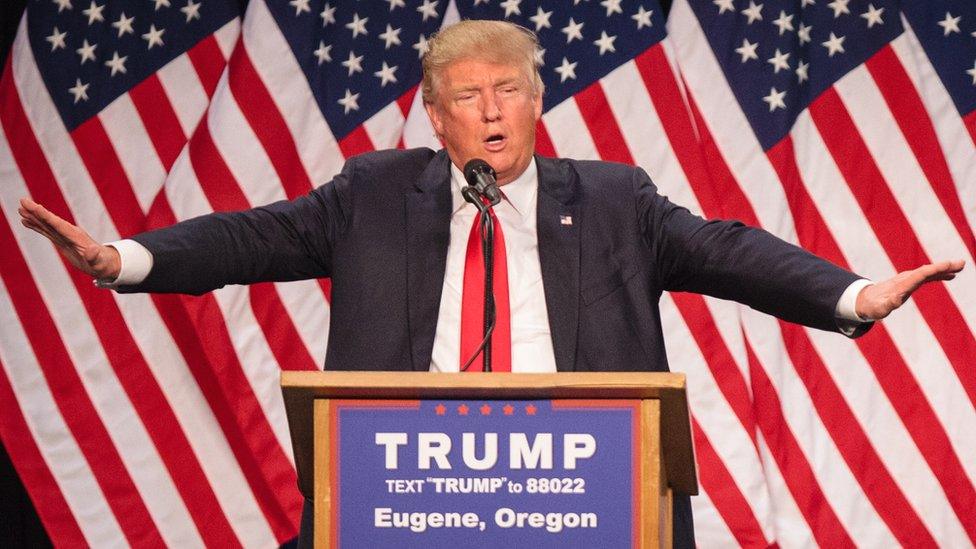
Donald Trump has effectively won the Republican presidential nomination, leaving pundits and analysts wondering if a rhetorical "pivot" to a general election campaign is in the works.
Will he be less outspoken? Will he temper his Twitter tirades? Will he back down from his calls for a Muslim ban?
But there are some significant ways Mr Trump is already altering his campaign strategy - sometimes in direct conflict with promises and assertions he made during his long, successful race to the top of the Republican Party.
Here are five.

The bankroller
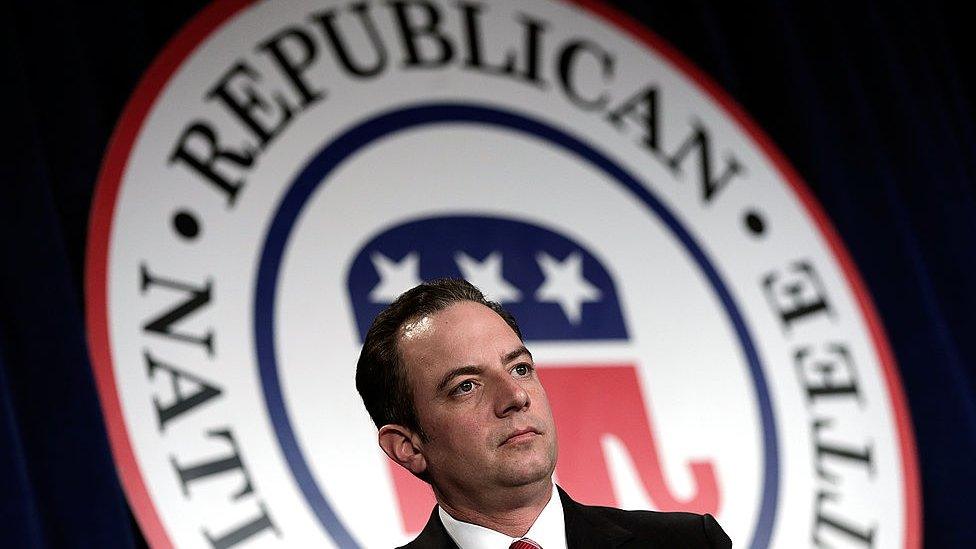
Mr Trump will raise funds with Republican National Committee and Chairman Reince Priebus (above)
Mr Trump has repeatedly boasted that he was paying for his campaign out of his own personal fortune.
"By self-funding my campaign, I am not controlled by my donors, special interests or lobbyists," he posted on Facebook, external back in September. "I am only working for the people of the US!"
Even though that's not exactly true, external - Mr Trump was loaning his campaign money and could someday pay it back, in addition to raising funds through donations - it was a central part of his pitch to those put off by the current political system.
Now, however, all pretence is gone. Mr Trump announced he's hired a veteran money man - a former Goldman Sachs partner, external, no less - as his national finance chairman. And on Tuesday he reached an agreement, external with the Republican Party to conduct joint fundraising through a network of committees that can take donations of up to $449,400 (£307,850) per person.
Mr Trump's move is an acknowledgement that he would be hard-pressed to self-finance a general election campaign, which could cost more than $1bn. He's wealthy - but he's not that wealthy.

Poll-tested
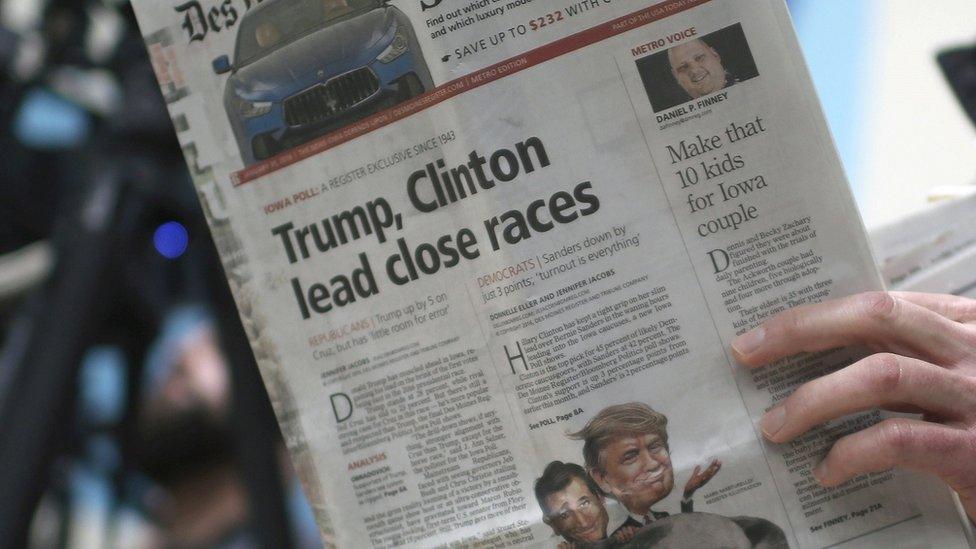
Mr Trump will stop relying on publicly released polls
Mr Trump has repeatedly insisted campaign-funded opinion polls are a waste of money.
"I don't have pollsters," he said, external last August. "I don't want to be unreal. I want to be me. I have to be me. You know, we have enough of that in Washington, with pollsters telling everybody what to say and everybody being controlled by the special interests, and the lobbyists, et cetera, and the donors."
In fact, Mr Trump was dismissive of the whole idea of data-driven campaigns - including President Barack Obama's winning presidential bids.
"Obama got the votes much more so than his data processing machine, and I think the same is true with me," he told, external the Associated Press.
That was before the Trump campaign hired, external Republican pollster Tony Fabrizio, a veteran of the presidential campaigns of Rand Paul, Rick Perry and Bob Dole and a host of other state-level candidates.
Accurate, focused polling can serve as a presidential campaign's eyes and ears. It provides detailed information that helps a candidate's team determine where and how to spend resources.
At least that's what high-paid professional political pollsters will tell their candidates. And now Donald Trump is listening.

Tele-prompted
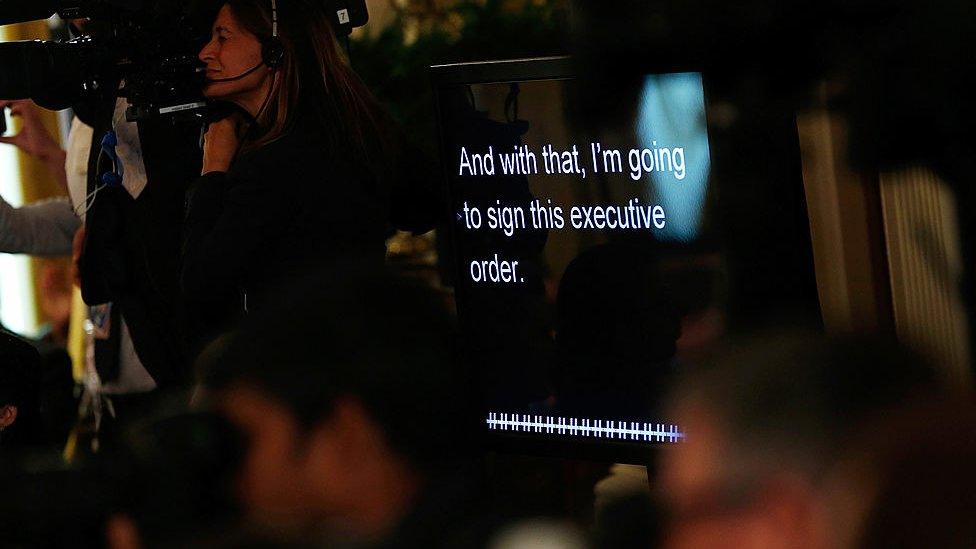
Mr Trump has taken issue with President Obama's use of teleprompter
Like many Republicans, Mr Trump loved to make fun of Mr Obama's reliance on Teleprompters during public events.
"I've always said, if you run for president, you shouldn't be allowed to use Teleprompters," he said, external in October. "Because you don't even know if the guy's smart."
Part of Mr Trump's appeal was his off-the-cuff style. He could say anything at any time, no matter how controversial - compared to controlled, careful career politicians like Hillary Clinton.
"I watched Hillary the other day, and she has the biggest teleprompters I've ever seen," he said in January. "In fact, if you're sitting on that side of the room or that side of the room you can't see her because when they are outside, they are painted black and you can't even see her."
Then Mr Trump used a Teleprompter to deliver a speech to the American Israel Public Affairs Committee in March. And he used one to give a foreign policy address in April.
His campaign has said that more substantive, scripted speeches are in store, including on the military, education reforms and the Supreme Court.
This, campaign manager Corey Lewandowski told the Washington Post, external, represents "the natural maturation of the campaign".

Kissing Kissinger
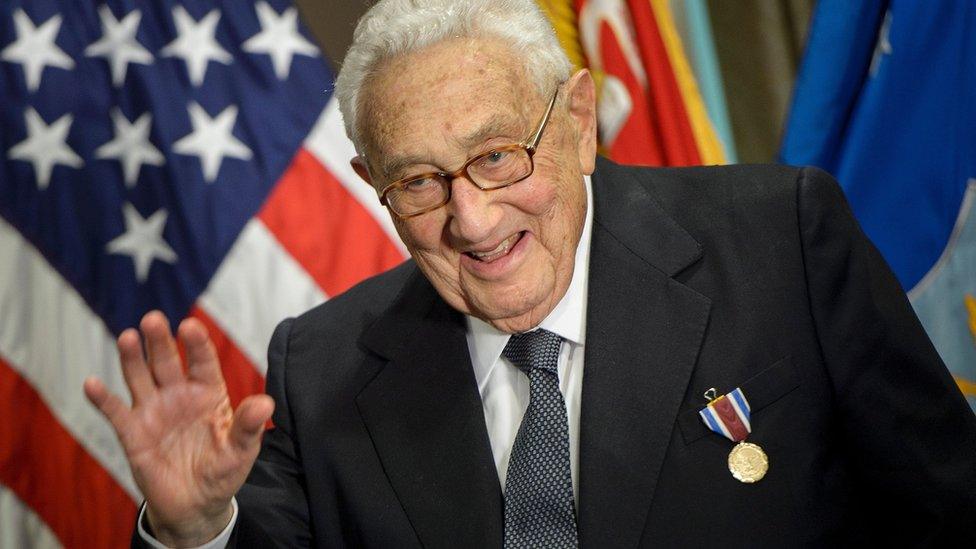
Mr Trump has been making nice with conservative elders, including Mr Kissinger
Over the course of his primary campaign Mr Trump hasn't been afraid to pick fights with fellow conservatives. He memorably sparred with Fox News moderator Megyn Kelly in the first Republican debate in August. He repeatedly criticised his party's foreign policy establishment. And he relentlessly disparaged the Republican Party leaders.
"They win their election, and they go to Washington, and they're with their wife or husband, and they say: 'Look at the beautiful columns. I don't want to leave this place, this is so beautiful,'" Mr Trump said of Republican politicians in December. "And they let us down."
Now Trump has reunited with Kelly in a make-nice Fox interview. He's given a foreign-policy speech to a Washington think tank. He's made the rounds on Capitol Hill and "planted seeds" with Speaker of the House Paul Ryan.
On Wednesday afternoon he even had a closed-door meeting with the dean of the conservative foreign-policy establishment, Henry Kissinger.
In the past Republicans have pivoted from the right to the political middle. Mr Trump, it seems, is pivoting from the outside to the inside.

Supreme courting
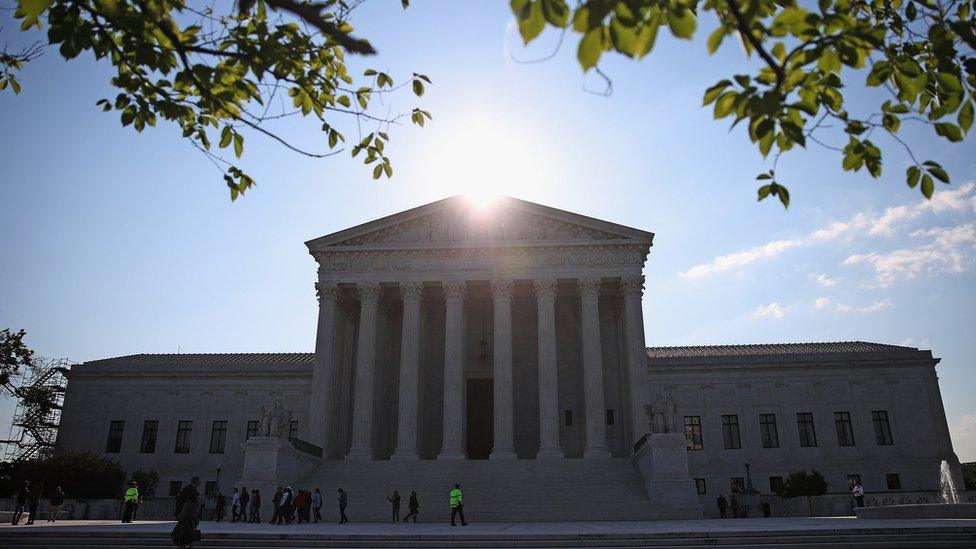
President Trump would likely have to fill Antonin Scalia's seat on the US Supreme Court
On Wednesday Mr Trump released his much anticipated list, external of potential Supreme Court nominees. For an unconventional candidate, it was decidedly conventional.
While one judge, Don Willett of Texas, has an affinity for Twitter, external that almost rivals Mr Trump's, the list - eight men, three women, all white - is only surprising for its adherence to conservative orthodoxy.
It looks like it could have been the product of the right-wing Heritage Foundation. In fact, it largely was, external.
All of the names are judges currently on either state or federal courts, even though there is no constitutional requirement that Supreme Court nominees even be lawyers.
While no one was expecting Mr Trump to suggest Hulk Hogan or Sarah Palin for the high court, his list looks a lot like business as usual for a Republican presidential candidate.
That may be just he way he wants it - but it's also not exactly what his primary campaign was all about.
- Published13 May 2016
- Published12 May 2016
- Published23 April 2016